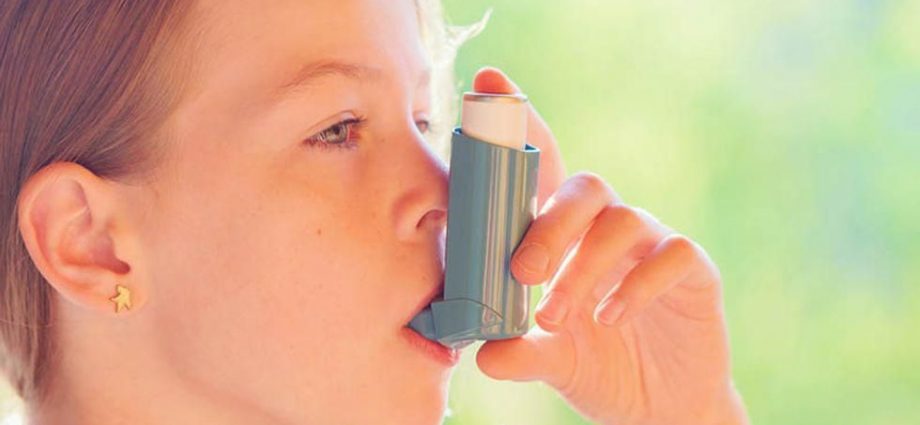FRIDAY, Nov. 11, 2022 (HealthDay News) — It’s a potentially deadly issue: Some U.S. school administrators don’t keep life-saving albuterol asthma inhalers on hand because they’re afraid of getting sued for misuse. That’s true even in states like Illinois, where strong “stock albuterol” laws are on the books, researchers say.
Kids with asthma don’t always carry their inhalers, and some may not even know they have asthma until they have an attack, experts note. But stock inhaler programs in some states are designed to make sure schools do have an asthma reliever, such as albuterol, on hand in case of emergency.
“Stock inhaler laws improve access to asthma reliever inhaler medications in schools for children who experience respiratory symptoms,” said study author Dr. Andrea Pappalardo. She’s assistant professor of medicine and pediatrics at the University of Illinois College of Medicine in Chicago and an American College of Allergy, Asthma, and Immunology (ACAAI) member.
“This simple policy solution allows for a fail-safe method to having medicine when a child needs it readily available [and] is critical to keeping our children in class where they belong,” Pappalardo said.
As it stands, 16 states (Arizona, Georgia, Illinois, Indiana, Iowa, Kentucky, Missouri, Nebraska, New Hampshire, New Mexico, New York, Ohio, Oklahoma, Texas, Utah, and Virginia) have laws or guidelines in place that aim to increase access to timely asthma treatment for kids when they are in school, according to the Allergy & Asthma Network.
The new study took place in Illinois, where schools can stock and administer undesignated asthma relievers. The law states that if stock albuterol is administered “in good faith,” there is no risk of a lawsuit.
But even this strong wording isn’t enough to calm litigation fears, it seems.
When researchers interviewed 20 nurses, clinicians, and school administrators in Illinois, 35% of those surveyed said they had difficulty obtaining prescriptions for stock inhalers. The fear of being sued was a big reason cited for being unable to secure prescriptions.
That needs to change, Pappalardo said.
“We need more education that enhances provider and pharmacist knowledge and comfort in prescribing stock medications, like asthma stock reliever inhalers, to schools,” she said. “We also need to consider additional regulation and education of malpractice insurers to address potential liability concerns.”
Parents of school-aged kids with asthma should have knowledge of their state’s policy, and pressure the school and/or district to have a stock rescue inhaler available if they don’t, Pappalardo advised. “Relying on a child to remember their inhaler is not easy, nor is accessing care when you need it,” she said. “Stock inhaler programs for schools give you, as a parent, an ease that if something goes wrong, there is a backup inhaler available for your child.”
Even if your child hasn’t gotten a diagnosis of asthma, medications could still be readily available to potentially help de-escalate symptoms if they were to have symptoms for the very first time at school, Pappalardo said.
“Stock inhalers are a simple policy solution that may help reduce school absences, Emergency Medical Service calls, and asthma-related health disparities by providing access to medications with asthma symptoms. It’s a win-win,” she said.
The research was presented Thursday at the annual meeting of the ACAAI, in Louisville, Ky. Findings presented at medical meetings should be considered preliminary until published in a peer-reviewed journal.
The benefits of strong stock albuterol laws dramatically outweigh any risks, said Dr. Angela Duff Hogan. She’s a professor of pediatrics at the Eastern Virginia Medical School in Norfolk, Va. She is the vice chair of ACAAI’s Asthma Committee.
“All kids [should] have access to epinephrine in an anaphylactic emergency,” she said. “If a kid is having an asthma attack and can’t breathe, having inhalers available rapidly before 911 ever gets there can prevent a severe asthma attack or fatality,” said Hogan, who has no ties to the new research.
School administrators might be worried about being sued if they use it when a kid doesn’t need it or the child has side effects, but these inhalers are safe, Hogan stressed. ”With multiple puffs, kids may be jittery or shaky, but they are very safe,” she said.
More information
There’s more on stock inhaler laws at the Allergy & Asthma Network.
SOURCES: Andrea Pappalardo, MD, assistant professor, medicine and pediatrics, University of Illinois College of Medicine, Chicago, member, American College of Allergy, Asthma, and Immunology (ACAAI); Angela Duff Hogan, MD, professor, pediatrics, Eastern Virginia Medical School, Norfolk, Va., ACAAI Asthma Committee; presentation, ACAAI meeting, Louisville, Ky., Nov. 10, 2022
Copyright © 2026 HealthDay. All rights reserved.

